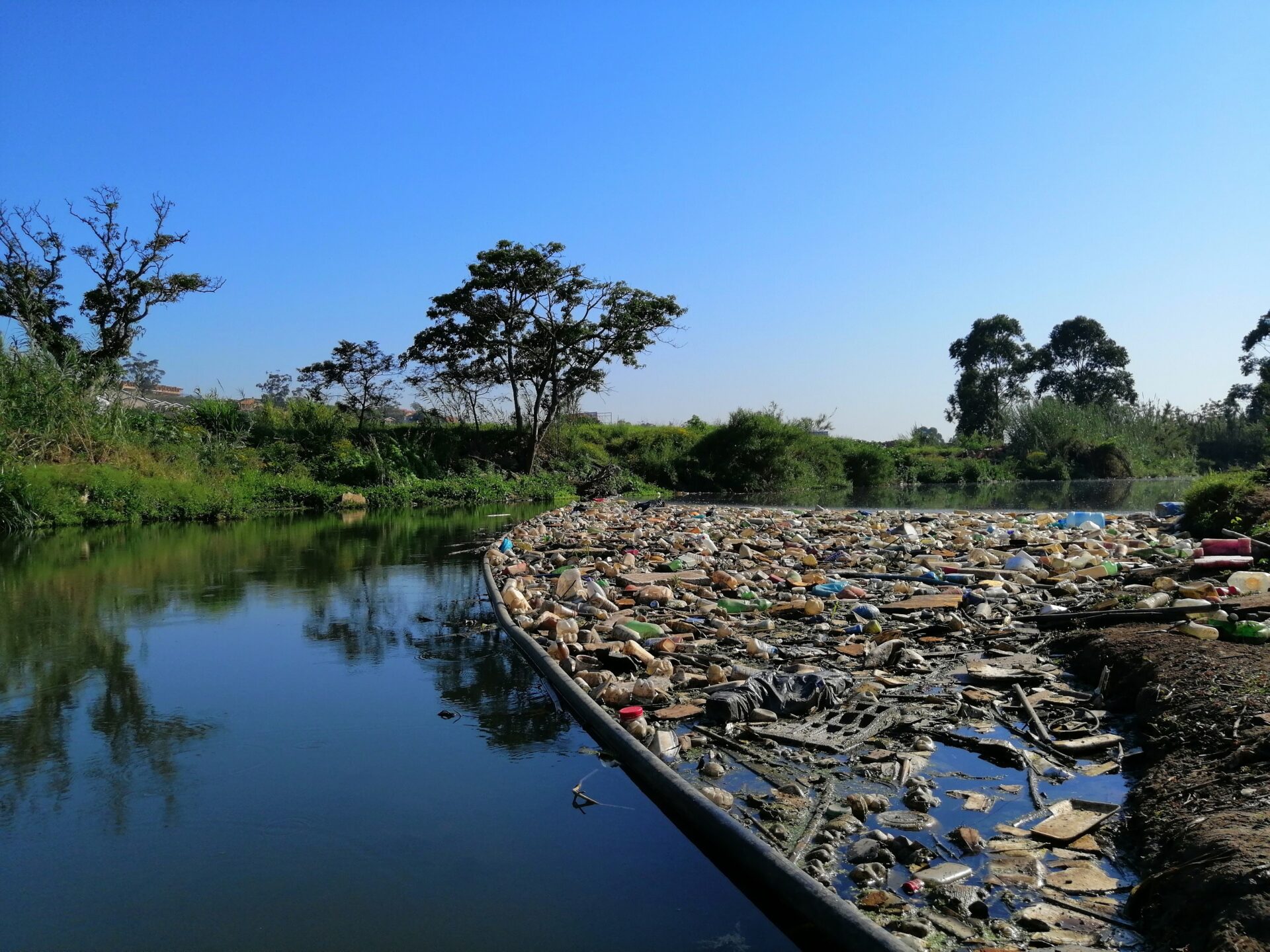Transformative Riverine Management in Durban, South Africa

Introduction
The eThekwini Metropolitan Municipality (eThekwini Municipality) governs the greater Durban area, a coastal city in South Africa containing 18 major river systems. Some river systems extend far inland of the city boundary. Over the past 30 years, deteriorating river water quality and more frequent flooding have caused escalating costs to the city, businesses and citizens.
With support from the C40 Cities Finance Facility, the eThekwini Municipality is building a case for investment in transformative, city-wide urban river management. Much can be gained from reflecting on and sharing the learnings from the city’s riverine management experiences so far. This report contrasts three different riverine management projects: (i) the city-led Sihlanzimvelo Project, (ii) community-led Aller River Pilot Project, and (iii) the Green Corridors special purpose vehicle, supported by the city.
*Download the full report from the right hand column. The key messages from the report are provided below. See the full text for much more detail.An overview of the three riverine management projects
The Sihlanzimvelo Project is led by the eThekwini city department responsible for roads and stormwater maintenance. The transversal steering committee is composed of 11 other city departments. The objective of the project is to remove litter, waste and invasive plant species from stream areas to reduce stormwater blockages and create employment for co-operatives formed by local residents. The project was started in 2012 and its implementation is ongoing.
The Aller River Pilot Projectis led by the Kloof Conservancy, a community-based organisation, promoting environmental awareness protection. The objective of the pilot project is to restore sections of the Aller River with a focus on water quality improvement and invasive species removal. It has a focus on training and empowering youth representatives through the Eco-Champs programme to undertake education and clean-up campaigns. The project was initiated in 2016 and implementation is ongoing.
The Green Corridors Green Spaces Projectis led by the Green Corridors NPC, a city-supported special purpose vehicle, working on community upliftment through the creation of a green spatial economy. The objective of the project is to enhance local quality of life, living environments and sustainable livelihoods. This project was initiated in 2010 and its implementation is subjected to an annual review of its Memorandum of Agreement with the municipality.Key Messages
Rivers are dynamic systems that are constantly responding to human and biophysical impacts. River management thus needs to be responsive to changes. A vast range of factors influences the performance and liveability of riverine corridors, including solid waste (littering, dumping), sand mining, the status of riparian vegetation, the attenuation of surface runoff (though natural and artificial wetlands, canalisation or diversion measures), pollution and discharges from wastewater systems. An analysis of the background and structuring of these projects suggests the following key insights:- Transformativeriverine management requires building effective transversal working relationships, for example, across departments, institutions and sectors. Projects should be planned collaboratively to establish joint project resourcing and mutual accountability.
- For transformative riverine management projects to be institutionally and financially sustainable, a compelling business case is needed. This business case should justify the project purpose and benefits in the context of the services that the city should deliver and its socio-economic and environmental priorities.
- Riverine management projects should be sized to ensure they are technically feasible, contextually relevant, manageable and operationally sustainable.
- Appointing an appropriately mandated, resourced and skilled programme manager with a multi-year focus is vital for transformative riverine management projects to be sustainable. This ensures that projects achieve their desired outcomes, are delivered cost-efficiently and within the desired timeframes, helping to underpin continued political and financial support.
- Transformative riverine management projects should be designed to build human and social capital to enhance human health, well-being and to grow the green economy.
- City partnerships with citizens, businesses and non-profits can leverage wider, longer-term investment in riverine management, and offer opportunities for innovative approaches that bring enhanced project impacts and transformation.
Suggested citation
C40 Cities Finance Facility (2019). Transformative riverine management projects in Durban: background and structuring.
Further reading
Related resources
- Transformative Riverine Management Projects in Durban: Background and Structuring
- eThekwini Municipality (Durban) Transformative Riverine Management Programme
- Green Corridors website
- Take Back our Rivers Project (Aller River Project) web page
- Stakeholder-Based Development Planning of the Shire River Basin’s Water and Natural Resources in Southern Malawi
- Collaboration Between Malian Communities & Scientific Organizations to Identify and Implement Responsive Water Management ACCCA
- NeWater - New Approaches to Integrated Adaptive Water Management
- Using climate information for Climate-Resilient Water Managemen
- Economics of CCA at the local scale under conditions of uncertainty and resource constraints: the case of Durban, South Africa
- Building Urban Resilience to Climate Change: A Review of South Africa
- FRACTAL: Future Resilience for African Cities and Lands
- Climate Change at the City Scale
(0) Comments
There is no content